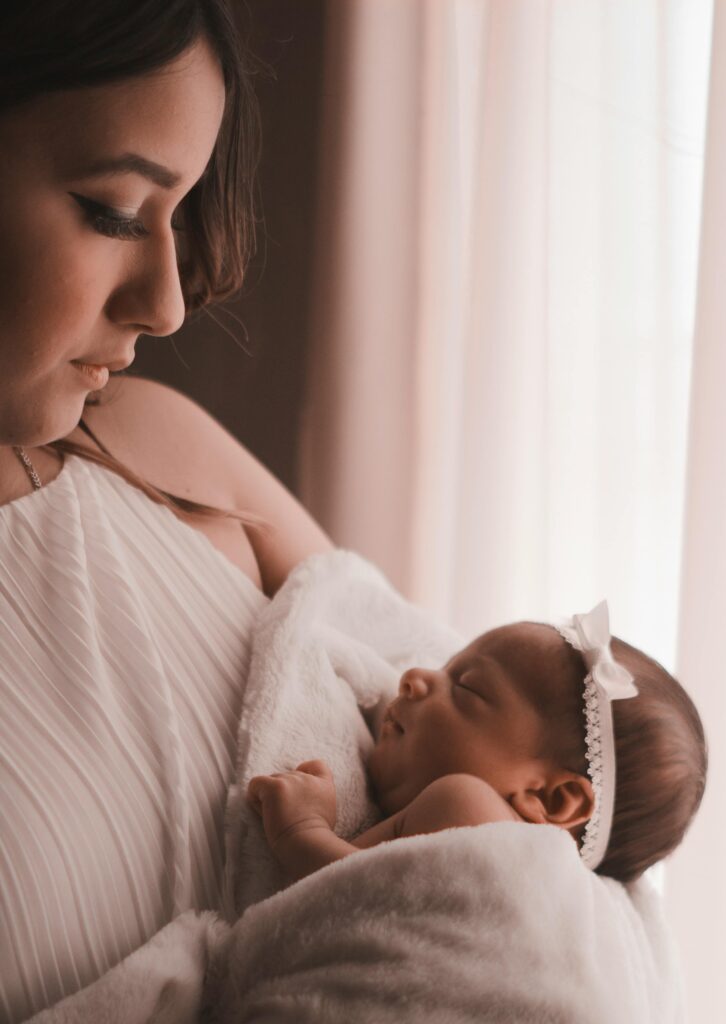In Vitro Fertilization (IVF)
Preparation Before In Vitro Fertilization (IVF)
Fertility Testing
Women need testing for hormone levels, ovarian function, and uterine condition. Men need to undergo semen analysis.
Lifestyle Adjustments
Certain lifestyle adjustments need to be made, such as adopting a healthy diet (high in protein, folic acid, and Omega-3), quitting smoking and drinking, exercising moderately, and maintaining a regular sleep schedule in order to optimize your health and prepare you for IVF.
Necessary supplements
Folic acid, vitamin D, CoQ10, and DHEA (for those with low ovarian reserve) may be needed to improve egg and sperm quality, and should be taken as prescribed by a doctor.
Maintain a Positive Mindset
Reduced anxiety, stable emotions, and yoga practice/meditation are all key to ensure both mental and physical readiness.


IVF Success Rates and Realistic Expectations
Success Rates Vary by Age:
The success rate is 40-50% for women under 35, 30-40% for women between 35-40, and decreases to 10-20% for women over 40. Factors such as ovarian function and embryo quality also affect the results.
Transfer 1-2 High-Quality Embryos:
Blastocysts (day 5 embryos) may lead to a higher success rate, but implantation is not guaranteed 100%. Some patients may require multiple attempts.
Risk of Miscarriage Remains:
Even with a successful pregnancy, there is still the possibility of biochemical pregnancy, fetal arrest, or early miscarriage. IVF cannot completely eliminate the risk of natural miscarriage.
Multiple IVF Cycles May Be Needed:
The chance of success in one cycle is limited, and some patients may need 2-3 cycles or more. Patience and realistic expectations are important.
Healthy Lifestyle + Psychological Adjustment:
Diet, exercise, and mental health can improve IVF success rates, but it is important to accept the possibility of failure and maintain realistic expectations.
IVF Process
1.Consultation and Evaluation
The fertility specialist assesses health and fertility, then creates a personalized IVF plan.
2.Ovarian Stimulation
Hormone therapy stimulates egg development, with monitoring through blood tests and ultrasounds.
3.Egg Retrieval
Mature eggs are collected via a minimally invasive procedure under light sedation.
4.In Vitro Fertilization
Eggs are fertilized with sperm in the lab, and embryos are cultured and tested for quality.
5.Embryo Transfer
The best-quality embryo is transferred to the uterus, supported by hormone medication for implantation.
6.Pregnancy Confirmation
A blood test two weeks later confirms if pregnancy has been achieved.


Why Choose Everbloom Fertility Solutions?
World-Leading IVF Success Rates
The U.S. offers the most advanced IVF technology and the highest success rates. Fertility specialists tailor treatment plans to maximize conception chances.
Advanced Laboratories and Expert Medical Team
The U.S. has top reproductive labs and experienced doctors to maximize egg retrieval and embryo success. Choosing the right clinic and doctor is key to success.
Professional Support Every Step of the Way
Based in Silicon Valley, Everbloom Fertility Solutions has years of experience in IVF, egg donation, and surrogacy. Our team ensures smooth preparation, clear communication, and a seamless fertility journey.
FAQs
Do IVF Medications Have Strong Side Effects?
Most women experience only mild side effects, such as discomfort from injections or slight bloating, and can continue with daily activities and light exercise.
How Long Does One IVF Cycle Take?
From ovarian stimulation to embryo PGT testing, the process typically takes about 6-8 weeks.
How Many Embryos Can Be Transferred in One Cycle?
It depends on age, health condition, and whether the embryos have undergone genetic testing. According to the American Society for Reproductive Medicine, most women transfer one or two embryos.
Do I Need Bed Rest After Embryo Transfer?
From a conception standpoint, bed rest immediately after embryo transfer is not recommended. Recent studies suggest that staying active and moving around after the transfer can actually increase the chances of embryo implantation. Therefore, it is recommended to continue with normal life and activities after the transfer.
What Are the Differences Between PGT-A, PGT-D, and PGT-M?
>PGT-A (Aneuploidy Screening): Tests whether the embryo has abnormal chromosome numbers (e.g., Down syndrome). It is suitable for older women, those with recurrent miscarriages, or previous IVF failures, and can improve success rates.
>PGT-M (Monogenic Disease Testing): Screens for specific genetic mutations (e.g., thalassemia, cystic fibrosis). It is suitable for families with a history of genetic disorders to prevent transmission of hereditary diseases.
>PGT-D (HLA Matching Testing): Selects embryos with HLA matching for a sick sibling, used for bone marrow or cord blood transplants. It is suitable for families needing an HLA-compatible donor.
How Long Do I Need to Take Medication After Embryo Transfer?
After IVF embryo transfer, medication is typically required to support luteal function, promote embryo implantation, and reduce the risk of miscarriage. The duration of medication varies depending on individual circumstances, but it usually lasts from 2 weeks to 12 weeks.
Embark on Your Fertility Journey Today
Whatever fertility challenges you may have, we’re here to help you realize your dreams with professionalism and warmth
